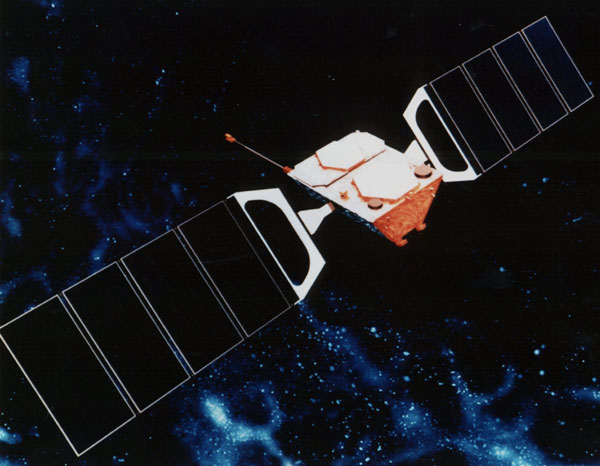Russia reused Soyuz after its failed launch
Five days after the missile launch failed, on December 28, Russia's Soyuz rocket system was returned to service. And this time, the Soyuz boosters successfully placed 6 data company satellites and US satellite phones Globalstar into orbit.
>>>Russian satellites fall immediately after launch
This Soyuz rocket was launched from Baikonur space airport in Kazakhstan at 1709GMT, and an hour and 40 minutes later, it brought the Globalstar 6 satellites into orbit.
BBC said last Friday, Soyuz boosters exploded shortly after being launched from the Plesetsk space airport in northern Russia. Its fragments fell to Novosibirsk, central Siberia.

Globalstar's second generation of satellites. (Photo: BBC )
The Soyuz rocket used last week is 2.1b , while this missile is type 2.1a used for Gloabalstar missions. These two Soyuz missiles share many design features but use different engines on the 3rd floor, this is the floor that was supposed to be the failure of the rocket launch five days earlier.
The successful launch on December 28 created a huge belief for Globalstar. This is the first major satellite phone company interested in upgrading its system. The six latest satellites were launched next after 12 satellites were launched in July this year and October last year.
The upgrade is becoming urgent for the company because their current satellites have begun to perform poorly. Launched in the late 90s of the 20th century, many of its first satellites are now believed to have been damaged by radiation destroying their S-band signaling device, leading to a limited capacity. Two-way signal transmission. Globalstar is entrusting the future to their second generation satellite communication system. The company is planning to add 6 more satellites to orbit to enhance quality and coverage.
Tony Navarra, Globalstar's global chief executive, quickly thanked Wednesday for the Soyuz rocket executive team and Arianespace, a French company marketing commercial rocket launchers. Soyuz through its subsidiary Starsem.
- Russia successfully launched Soyuz boosters new version
- Spectacular scenery when Russian spacecraft are launched on ISS
- Soyuz trains on the launch pad
- Russia continues to launch Soyuz spacecraft
- Russia is preparing a Soyuz launch
- Russia is about to launch its first private satellite
- Russia launched new missiles on orbit
- Russia launched 6 American satellites
- Russia successfully launched the Soyuz-MS 09 spacecraft on the ISS station
- Russia failed to bring 2 satellites into orbit
- Soyuz ships on the launch pad for the mission to send people to ISS
- The Soyuz spacecraft sends three astronauts to ISS
 Van Allen's belt and evidence that the Apollo 11 mission to the Moon was myth
Van Allen's belt and evidence that the Apollo 11 mission to the Moon was myth The levels of civilization in the universe (Kardashev scale)
The levels of civilization in the universe (Kardashev scale) Today Mars, the sun and the Earth are aligned
Today Mars, the sun and the Earth are aligned The Amazon owner announced a secret plan to build a space base for thousands of people
The Amazon owner announced a secret plan to build a space base for thousands of people